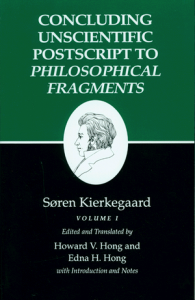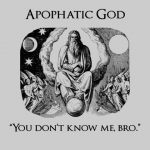Second, the seemingly Catholic staple, the catechism, is a sign of falling away from a millennium and a half of a different approach to religious being-in-the-world. To the disappointment of Catholic traditionalists, Harrison goes on to recount how the proliferation of catechisms and their rote memorization was actually a mostly Calvinist, to a lesser extent Lutheran, obsession. It was only later that the Counter-Reformation picked up these modern methods and applied them whole-hog to Catholicism. Yes, all these deleterious things happened thanks to the Council of Trent.
What I’m trying to say here is that those who bitterly idolize the “traditional” Latin Mass (as if tradition only went back 400 years) and the Baltimore Catechism can in some instances be seen, actually I would say not infrequently, as modernists. Micheal Martin already pointed this out in his guest post on the most sophiological encyclical of them all (think: of the integral wisdom, Greek Sophia, literature of the Hebrew Bible).

Ironically, someone like Kierekgaard in his Concluding Unscientific Postscript or Stages on Life’s Way is closer in spirit to ancient philosophy and theology, because in those books the Dane is after inculcating and embodying the virtues. He points his readers toward a way of life that he claims he still has not fully realized himself, against the Hegelian objectivists of his time who believed they had reached the end of history through a fully objective knowledge of the world.
This is the reason why Kierkegaard can say “subjectivity is objective.” It objectively changes our subjective relation toward the world. In that way it also makes the world co-evolve with us, because if we see the world differently, then we treat it differently.
That’s at the heart of the medieval vision at the bottom of Laudato Si’. And so George Weigel is predictably wrong when he says that the latest papal encyclical is about us not trees and snail darters. It is about us and trees and snail darters.
Subjectivity is objective.
If this seems implausible to you, then you are probably more modern than faithful to your tradition. You might be more like characters in Woody Allen’s Love and Death with their doubts about the objectivity of subjectivity:
After all this you might want to take a look at what the author of Minding the Modern: Human Agency, Intellectual Traditions, and Responsible Knowledge (an interview with him will appear soon on these pages) calls the most important critiques of modernity.
While you’re at it: Spare a dime through my PayPal donation button on the right side of my homepage. I’m having car troubles and don’t have enough money to deal with them.












